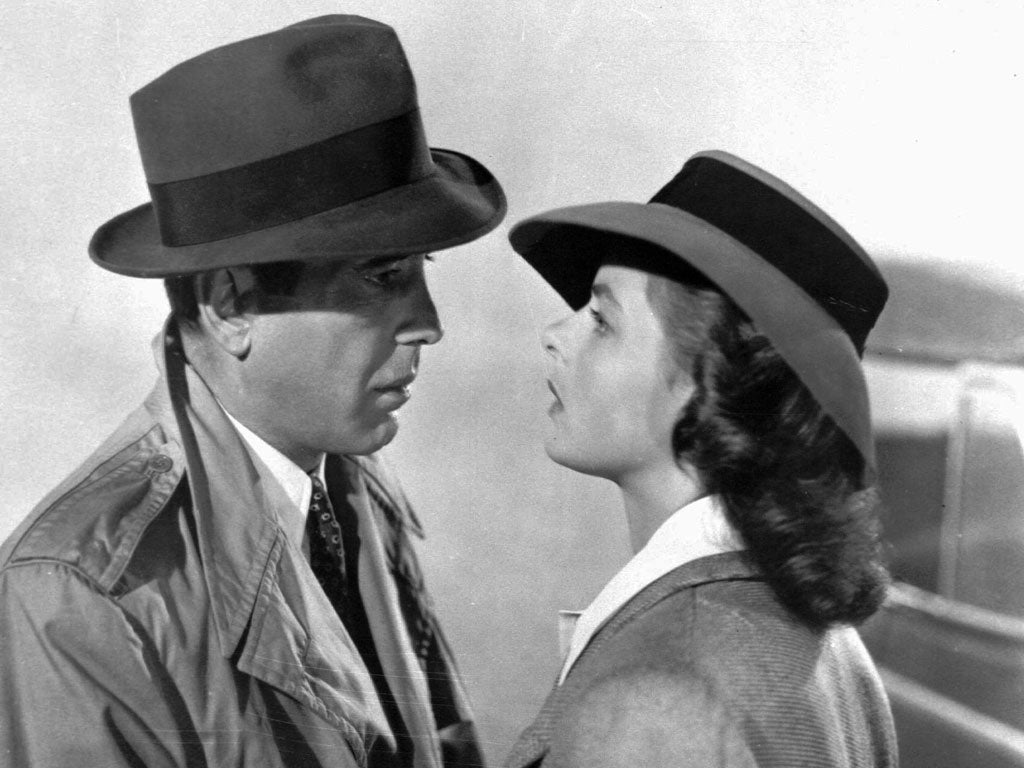Danny Boyle says Government cuts are ruining the arts, but where are the statistics to prove it?
A Week in Arts: We need solid statistics when it comes to arts cuts. Plus, The Evening Standards Theatre Awards and a Casablanca sequel? Has Hollywood no shame?


Your support helps us to tell the story
From reproductive rights to climate change to Big Tech, The Independent is on the ground when the story is developing. Whether it's investigating the financials of Elon Musk's pro-Trump PAC or producing our latest documentary, 'The A Word', which shines a light on the American women fighting for reproductive rights, we know how important it is to parse out the facts from the messaging.
At such a critical moment in US history, we need reporters on the ground. Your donation allows us to keep sending journalists to speak to both sides of the story.
The Independent is trusted by Americans across the entire political spectrum. And unlike many other quality news outlets, we choose not to lock Americans out of our reporting and analysis with paywalls. We believe quality journalism should be available to everyone, paid for by those who can afford it.
Your support makes all the difference.On one thing the arts world is agreed. The next round of cuts is going to be awful. My information too is that there are further cuts around the corner to add to the 30 per cent budget reduction that the funding body, the Arts Council, has already suffered. And so Danny Boyle, film director and architect of the brilliant Olympics Opening Ceremony, has led the charge in defence of regional theatre, appearing alongside the National Theatre director, Sir Nicholas Hytner, and other worthies to stress the vital importance of regional theatre, not only as a great force in itself but as a seed-bed for the NT, West End theatre and other creative art including – lateral argument though it may be – the Olympics Opening Ceremony.
Championing the arts to government usually takes one of two forms. The importance is stressed of the arts either as a nurturing force for the population, giving education, enlightenment and understanding both of society and of oneself; or as an economic force, a source of employment, exports and tourist income. The champions of regional theatre actually employed both these defences, some arguing for the economic vitality of the arts, others arguing for the arts as spiritual and intellectual nourishment.
At which point I have to disagree. Not with their arguments. I agree with those wholeheartedly. No, I disagree with the misguided belief that either of these arguments is the way to win over government.
For the Government will say that these arguments were deployed during the last round of cuts, but where is the evidence of the arts generally and regional theatres in particular being adversely affected? They all seem to be still standing, they seem to be staging good productions. Where is the evidence of death and destruction? If there is concrete evidence, why on earth are arts leaders not shouting it from the rooftops? What I am wondering is why I saw Danny Boyle, Nick Hytner and Tom Morris of the Bristol Old Vic on the TV news talking about the importance of the arts and the cuts they had faced and were facing, and none of them used those soundbites to give one single statistic to illustrate the havoc we are told is being wrought. Not one.
Is this distinguished lobby unable to employ a researcher? Are the heads of all the regional theatres unable to come up with a list of productions cancelled, staff laid off, buildings closed? The Treasury likes to have real, tangible evidence. I don't doubt that that evidence exists. But unless the arts world produces it and uses any opportunity of national TV soundbites to publicise it, unless it begins to show some rigour in its collation and trumpeting of this evidence, and can produce damning statistics to go alongside its rhetoric, I strongly fear that even the likes of Danny Boyle and Sir Nicholas Hytner will find their arguments falling on deaf ears.
Has Hollywood no shame when it comes to sequels?
Hollywood is considering a sequel to the perfectly formed and perfectly ended 1942 classic Casablanca, pictured above. It feels like a travesty already, and Humphrey Bogart's son is among those who have publicly opposed the idea. The film, which starred Bogart and Ingrid Bergman, had the exquisite ending of the couple parting, reminding each other that "We'll always have Paris" – a reference to an encounter before the film, the encounter that sealed their romance. A sequel feels both unnecessary and full of dangers. But, it could be worse. Hollywood could have come up with a prequel. In which they went to Paris…and had a thoroughly rotten time.
The brightest light in a stellar mix of leading ladies
The Evening Standard Theatre Awards take place tomorrow in a star-studded ceremony at the Savoy Hotel in London. The shortlist is, as usual, intriguing. I am particularly interested by the best actress nominees, who include Hattie Morahan, Laurie Metcalf, Cate Blanchett and Eileen Atkins. They all gave fine performances, and it would be foolish to try to pick the winner. But hey, let's be foolish. I certainly loved Cate Blanchett's tour de force in Big and Small. But, I saw 78-year-old Eileen Atkins's performance in Samuel Beckett's All That Fall just the other day. And hers is unquestionably my selection as the most stunning and most memorable on the West End stage over the past year.
Join our commenting forum
Join thought-provoking conversations, follow other Independent readers and see their replies
Comments